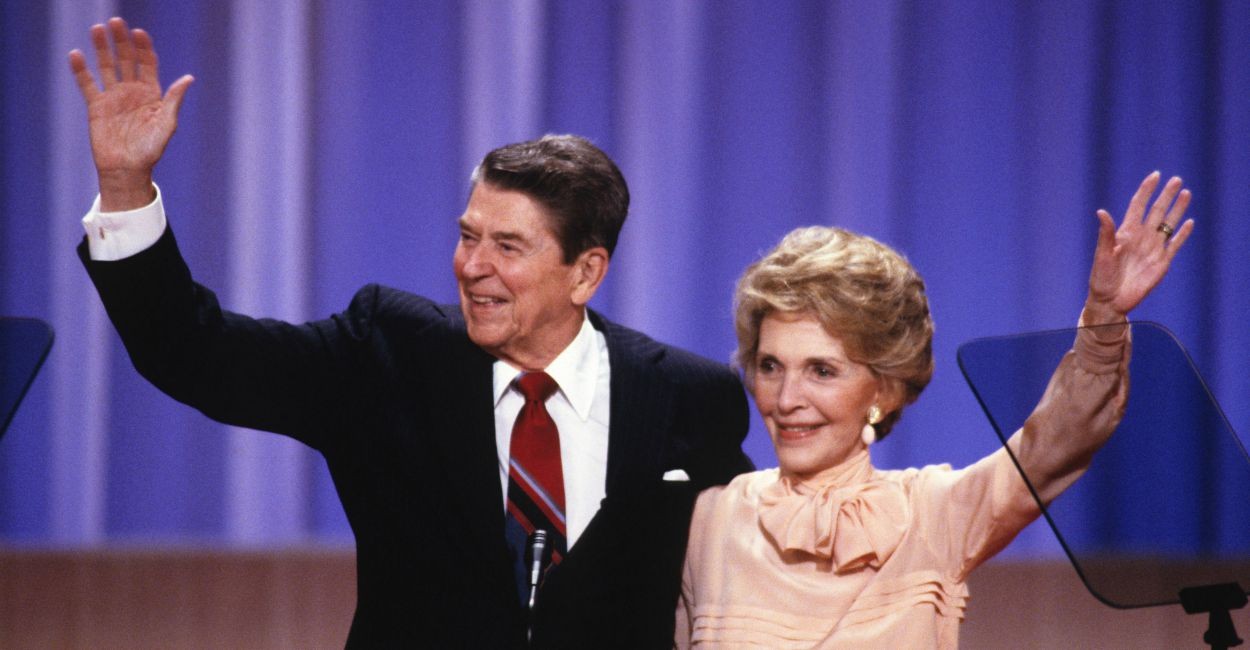
On July 17, 1980, 35 years ago, when he accepted the Republican presidential nomination, Ronald Reagan—the great communicator—outlined what he intended to do as president with five little words—family, work, neighborhood, peace, and freedom.
Family.
Reagan was always outspoken about pro-life issues such as the need to protect the unborn child. In 1984, for example, he published “Abortion and the Conscience of the Nation,” becoming the first president to write a book while in office. In his acceptance address, he emphasized that “work and family are at the center of our lives, the foundation of our dignity as a free people.”
Work.
In his acceptance, Reagan argued that across-the-board tax cuts would jump-start the American economy—mired in stagflation as a result of Jimmy Carter’s failed policies. He stressed the dignity of work and said that the ability to support yourself was essential to a free people and a free nation.
“Reaganomics” proved to be the right medicine for our ailing economy—unemployment dropped dramatically, inflation subsided, and 17 million new jobs were added.
Neighborhood.
Reagan quoted Thomas Jefferson more than any other founder citing his firm commitment to liberty and limited government. In the face of an ever expanding federal government, candidate Reagan called for a renewal of “our compact of freedom.”
Echoing Alexis de Tocqueville and his praise of America’s voluntary associations, Reagan urged the people to restore “the American spirit of voluntary service, of cooperation, of private and community initiative.”
He promised that as president “everything that can be run more effectively by state and local government we shall turn over to state and local government, along with the funding sources to pay for it.” He would later call it “a New Federalism.”
Peace.
Reagan believed deeply in the concept of peace through strength—a phrase first used by President Dwight D. Eisenhower—and as president he championed a sophisticated, multi-faceted foreign policy that led, shortly after he left office, to the collapse of communism in Eastern and Central Europe and the dissolution of what he once called “an evil empire,” the Soviet Union.
In his 1980 address, he declared that “it is the responsibility of the President of the United States, in working for peace, to insure that the safety of our people cannot successfully be threatened by a hostile foreign power.”
As president, he strengthened the military, supported anti-communist forces around the world, and most critical of all introduced the Strategic Defense Initiative that convinced the Soviets they could not win the arms race.
Freedom.
In his acceptance remarks, Reagan promised to limit the overreach of the federal government into the lives of Americans. “We must have the clarity of vision,” he said, “to see the difference between what is essential and what is merely desirable; and then the courage to bring our government back under control.”
Through his historic tax cuts and pruning of non-essential services, President Reagan was able to free up the economy and enable Americans at all economic levels to spend their money as they and not the government wished.
At the same time, he initiated a Reagan Doctrine in foreign policy predicated on a simple solution to ending the Cold War: “We win and they lose.” By the end of the decade, and after Reagan had gone to Berlin and challenged the Soviet leadership, “Mr. Gorbachev, tear down this wall!” the wall was no more and all of Europe knew true peace for the first time in over 40 years.
As a candidate and as a president, Ronald Reagan cautioned against depending on one political leader or one political party. “My view of government,” he said, “places trust … in those values that transcend persons and parties. The trust is where it belongs—in the people. The responsibility to live up to that trust is where it belongs, in [our] elected leaders.”
Reagan saw himself as part of that relationship, committed to the first principles that had formed America and that keep her and all of us free. From beginning to end, he was a great communicator who understood the importance of great ideas and communicated them as no other president has in modern times.





